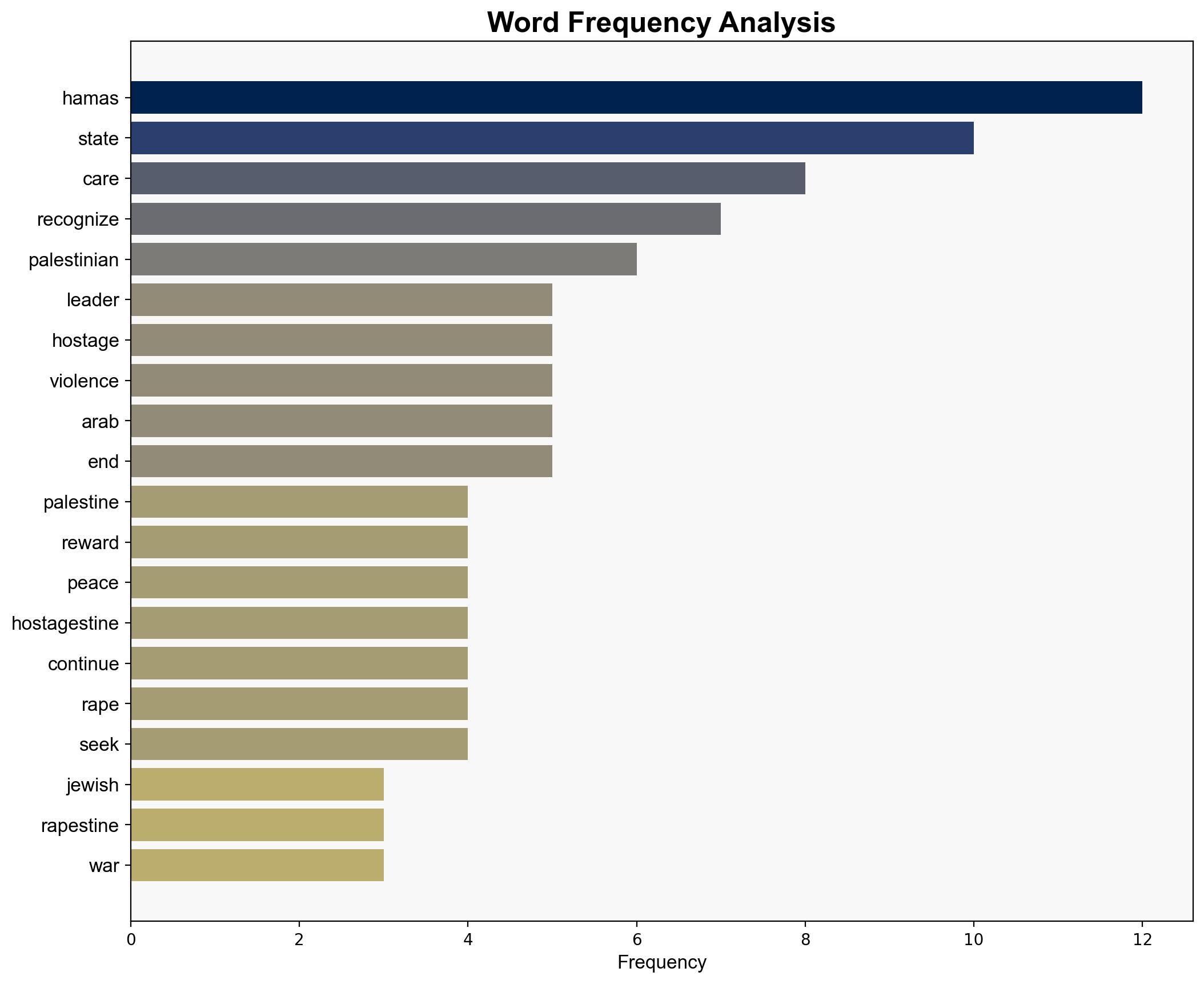France recognizes Hostagestine – Israelnationalnews.com
Published on: 2025-09-05
Intelligence Report: France recognizes Hostagestine – Israelnationalnews.com
1. BLUF (Bottom Line Up Front)
France’s recognition of Palestine, termed “Hostagestine” in the source, is portrayed as a capitulation to terrorism. The analysis presents two primary hypotheses: (1) France’s decision is a strategic move to stabilize the region and promote peace, or (2) it is a misguided action that inadvertently rewards terrorism. The second hypothesis is better supported by the source’s narrative. Confidence in this assessment is moderate due to the source’s potential bias. Recommended action includes diplomatic engagement to clarify France’s intentions and mitigate potential fallout.
2. Competing Hypotheses
1. **Strategic Stabilization Hypothesis**: France recognizes Palestine to promote peace and stability in the Middle East, believing that legitimizing Palestinian statehood will lead to constructive dialogue and reduce violence.
2. **Rewarding Terrorism Hypothesis**: France’s recognition is perceived as rewarding Hamas and similar groups, potentially encouraging further acts of terrorism by signaling that violence leads to political gains.
Using ACH 2.0, the second hypothesis is more consistent with the source’s language and tone, which emphasizes the negative consequences of recognition.
3. Key Assumptions and Red Flags
– **Assumptions**: The first hypothesis assumes that recognition will lead to peace, which may overlook the complexities of regional politics and the influence of non-state actors like Hamas.
– **Red Flags**: The source’s language is highly charged and may reflect bias, potentially skewing the analysis. The lack of alternative perspectives or acknowledgment of France’s potential strategic rationale is a significant blind spot.
– **Cognitive Bias**: Confirmation bias may influence the interpretation, as the source appears to affirm pre-existing beliefs about the ineffectiveness of recognizing Palestine.
4. Implications and Strategic Risks
– **Geopolitical Risks**: France’s decision could strain relations with Israel and other Western allies, potentially leading to diplomatic isolation or retaliation.
– **Terrorism and Security**: If perceived as rewarding terrorism, this move might embolden extremist groups, increasing the risk of attacks.
– **Regional Stability**: The decision could either catalyze peace efforts or exacerbate tensions, depending on subsequent diplomatic actions and regional reactions.
5. Recommendations and Outlook
- Engage in multilateral dialogues to understand France’s objectives and align on a cohesive strategy for Middle East peace.
- Monitor extremist group communications for shifts in rhetoric or strategy following France’s recognition.
- Scenario Projections:
- Best Case: France’s recognition leads to renewed peace talks and reduced violence.
- Worst Case: Recognition triggers increased terrorism and destabilizes regional alliances.
- Most Likely: Short-term diplomatic tensions with potential for long-term stabilization if managed effectively.
6. Key Individuals and Entities
– Emmanuel Macron
– Mahmoud Abbas
– Hamas
– Francesca Albanese
7. Thematic Tags
national security threats, counter-terrorism, regional focus, Middle East peace process




